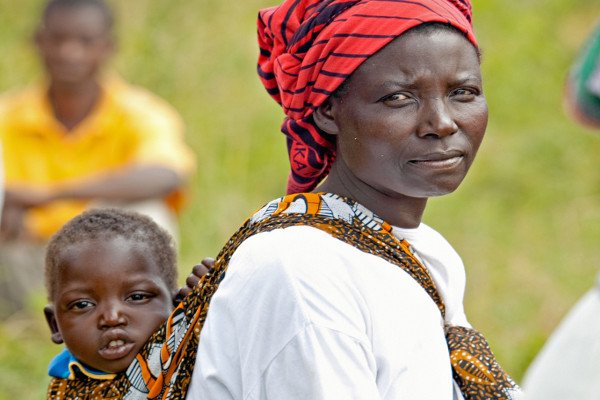
Ensured everyone receives the care they deserve:
Removed barriers to healthcare for people with disabilities
Facts
Negative attitudes and discrimination within communities can prevent people with disabilities from seeking healthcare. It can lead to inadequate care and limited access to healthcare services for people with disabilities. This translates to missed opportunities for early intervention, rehabilitation, and improved quality of life.
1 in 7
people worldwide have a significant disability, and this number is expected to increase.
57%
of people in Uganda with a disability have unmet healthcare needs.
2x
People with disabilities are twice as likely to develop chronic health conditions like diabetes, stroke, and depression.
20
Individuals with disabilities have a life expectancy up to 20 years shorter.
We worked to change that
In Uganda, we broke new ground by empowering community groups to identify and implement local solutions to improve access to healthcare for women, men, and children living with disabilities and improve their health.
What we did:
We teamed up with local organisations to create health groups run by people living with disabilities and other community members.
These groups tackled challenges faced by people with disabilities, like trouble accessing healthcare, stigma, and unfair treatment.
Here’s how it worked:
Identify local challenges: People living with disabilities and other community members come together to identify the most pressing barriers people living with disabilities face in accessing health services.
Design solutions, together: Through discussions guided by a trained local facilitator, the groups brainstorm and design culturally appropriate solutions to address these challenges.
Take action, lead the way: The group and their wider community take the lead in implementing these solutions, creating lasting change.
Evaluate and adapt: The group regularly assesses the effectiveness of their actions and makes adjustments as needed, ensuring continual improvement.
And why it worked:
Breaking down stigma: Community-led discussions can help break down stigma and prejudice surrounding disabilities, fostering a more inclusive environment.
Community-led solutions: By identifying challenges and designing solutions themselves, the community takes ownership of their health and well-being.
This fosters a sense of empowerment and increases the likelihood of solutions being culturally appropriate and sustainable.
Local expertise: People living with disabilities and their carers have first-hand knowledge of the specific challenges they face. This local expertise leads to targeted solutions that address the most pressing issues.
Disability FAQs
Knowledge empowers change. Find answers to your questions about disability and health inequity and discover how your understanding can make a difference.
-
1 in 7 people worldwide are living with a significant disability. An increase in non-communicable diseases, such as heart disease, strokes and cancer, and life expectancies are causing this number to grow.
People with disabilities face an array of inequalities that place more limitations on their day to day lives than others, including in their ability to access healthcare.
People with disabilities are often stuck in a cycle of poverty, particularly in lower-income countries. A lack of work opportunities places a huge financial burden on them and their caregivers, whilst facing increased healthcare costs related to their disability.
This prioritisation means other health conditions unrelated to their disability often go untreated. When work opportunities do arise, they are often accompanied by workplaces that are unaccommodating to their needs, or rife with discriminatory attitudes.
Rural communities are not always well adapted for people with disabilities. All too often, communities lack the necessary infrastructure to support them to travel to health facilities.
Harmful social norms can also create a hostile environment. For example, in parts of Africa people with albinism often face persecution and extreme violence, due to a severe misunderstanding of the condition and cultural beliefs that people with albinism have supernatural powers and bring misfortunes to a family.
-
Issues include inaccessible facilities, lack of transportation, and high medical costs.
A lack of sign language fluency, misguided beliefs or misunderstanding of health conditions, including dwarfism, all add to the difficulties people with disabilities face. For instance, some health workers will not want to treat people with these conditions.
The distance to health services, an inability to travel and cost can all act as barriers to receiving healthcare.
There is also the issue around the cycle of poverty and a lack of work opportunities. When there is the ability to work, often workplaces are not adapted for them, or they face discrimination in the workplace.
In Uganda, households with a member with a disability spend close to 39% more on household expenses than households without a member with a disability.
-
Those living with disabilities rely on close family members for personal assistance; however, their lives are further heavily affected. Oftentimes, young children have to take on demanding caring duties whilst their parents’ work. These duties will affect their childhood, education, and entire life.



